Mikkel Andersen, Guitar

Interview: Leif Martinussen
Text, edition and translation: Nete Parkov
Guitarist Mikkel Andersen is a great musician and individualist. On several image illustrations of his 3 CDs, you see him walking his own ways, and in this there is a lot of symbolism. To follow his own path is characteristic of his professional life, both artistically, pedagogically and in the world that surrounds him. In his quest for musical and human inspiration, he has traveled to near and distant destinations to provide concerts, to be a consultant in educational development projects, to establish contacts and collaborate with musicians and composers – and because he is deeply engaged to human, political and cultural subjects.
One day in February 2017 he visits the composer Leif Martinussen, who would like to hear about his extensive and multi-faceted projects.
Leif asks him the question:
- I know that you have just recorded your third CD that I am looking forward to hearing. When did the first come?
“It came in 2009″, Mikkel answers. “That’s when I thought that now it was! The idea had been on my way for a while, but I hadn’t had the courage before. That’s why it did so well that it entered directly. In Denmark’s Radio they were so kind to present it as “CD of the week” right away. ”
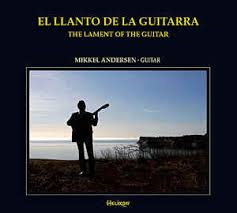
“There has just been a reprint of it, because it was sold out. So my first CD “El llanto de la guitarra” (The lament of the guitar) is now sold in 1,000 copies – that’s fun!
In 2012, Puesta de Sol (Twilight) followed, and this is a cheerful number two, because I obviously play much better, I think.”

“I also found myself feeling much better sitting in the chair, so much safer. With the first one I repeatedly said: “This project – it is not possible. This CD I simply can not send on the market, it’s simply not good enough”. You’ll also know about those processes when you’re in the process – everything is at the forefront and opens up. But this did not happen with Puesta de Sol, then I just thought everything sounded great. This one was also broadcasted in Denmark’s Radio. And it really is good, because I’m on a level higher.”
- Doesn’t it become extremely objective and honest to evaluate your own recordings?
“In any case, it is difficult to listen to the product, because it is simply happening throughout the recording phase that – you develop. When you get the product in hand, you have already moved in relation to the recording. And it may be a bit unbearable, so you just have to breathe: OK – I know, I’d play it differently today, but now we’ll stop!”
Mikkel Andersen’s recently released CD is called “Un buen Dia” (One fine day) and contains a wide selection of music from baroque composers Frescobaldi, Weiss and Bach over representatives of the traditional guitar repertoire like Villa-Lobos and Turina and to contemporary composers from our own Time, Antonio Lauro, Roland Dyens and Leo Brouwer.

“The recordings for Un buen Dia (One fine day) went well,” Mikkel tells. “Morten Mogensen is an excellent producer. Like the two previous CDs, it is recorded in the Store Heddinge Church. The front page image is the field towards Holtug Kridtgrav (Holtug Chalk Pit), where I walk out. In some way, it puts a sentence on a journey where I thought: With this I am pleased! I can be aware of that, and I think it’s okay. I can defend that as a guitarist.”
Listen to Mikkel Andersen playing a piece from his new CD: Roland Dyens “Tango en Skaï”
In this spring, Mikkel must again pack his suitcases to go on a long journey. At first a concert trip to Latvia, a concert trip to Chile follows, and after a short break at home, he continues to Greenland as a consultant in a music education development project.
Leif has visited Greenland a couple of times, and he is deeply fascinated by Mikkel’s concerts and consultancy assignments on the island. He asks:
- How did your cooperation with Greenlanders start?
“Some years ago, I was invited to Greenland for something called Nuuk International Guitar Festival. I attended the festival for several consecutive years, and then it began to expand. Right now I have not figured out how many times I’ve been up there.
I started working with the music school and did workshops, trained the teachers in methodology and such things – it expanded to Sisimiut, the second largest city. The town is located north of the polar circle, where you have sled dogs. And last time I also was in Maniitsoq, up north. Each of the 3 cities has their own sounds. Nuuk is such a bit raw, a bit frustrated, a little uncomfortable, a little “what the hell should I do of myself, and how is it that I get this inuit to fit into that….?”
- And then they have suburbs to Nuuk, where almost all Danes live.
“Yes, there are so many of those things – and one should take care too. I’m trying to stay a little on the edge of it because, you know, there is the whole issue of “expats” around the world. And in Greenland, the Danes are just expats, because most of them are staying there on a contract – they have something like a back door. While the Greenlanders – they are stuck. However, it is my impression that some things are being done to change it in the education system. And there are many Danes who have integrated themselves into society and try to live at eye level with Greenlandic values.
April, I will visit Sisimiut, where I will lead some high school students to the exam and do some concerts in the city. When I stayed there last, I was also in Maniitsoq – this wonderful little crack, called Sugar Loaf. It makes sense when you see that there is “sugar” on the small islands and mountain peaks outside Maniitsoq. Then it becomes very clear that there is a reason for calling it so. In this place a new music school arises, which I help to get started in my capacity as a guitar teacher. And I’m helping find people who can teach.”
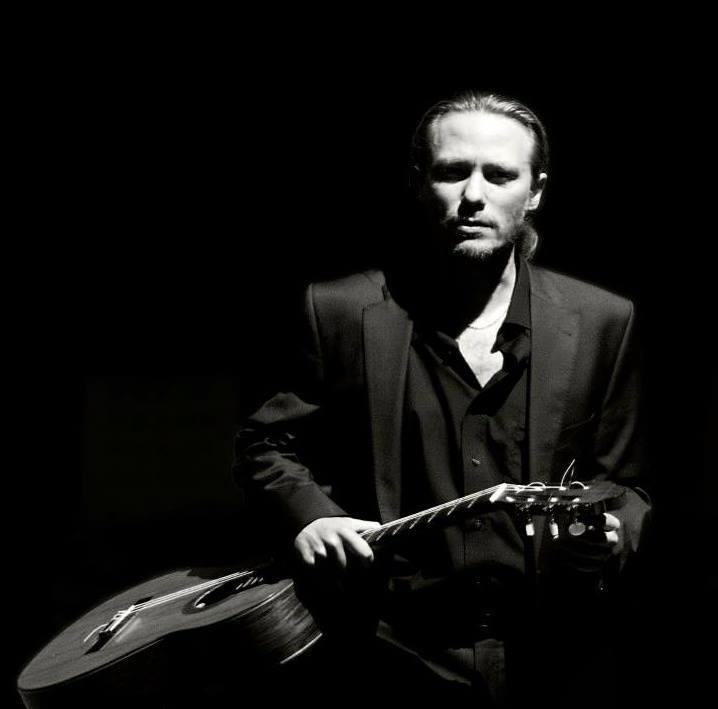
“I spend my time here in Denmark and have the life that I have – with speed and a lot going on. And then, when you arrive in Greenland, it’s like hitting a wall. So, you see, the first 2-3 days are not overwhelmingly easy. You think: O, my God! You may think some thoughts you not usually think, you may sharpen your senses … And then the pulse rate is lowered.”
- Is it mostly Danish or Greenlandic children coming?
“They are Greenlandic children. And that I can say some words in Greenlandic and that I dare speak slowly, this opens doors. Communication is exciting in Greenland, because it is so worn by mimics and eyes, much less by words. A very good example of it was a workshop in which I participated in Maniitsoq. There we should meet some students who had just gone out of primary school classes. It was just fine and we got into a class. Rino, the guitar teacher, presented it in Greenlandic: Do you want to join some guitar at the music school – come! And then ….
Nothing happened. I thought that there was probably no interest in it. But as we walked out the door, Rino said, “It was fine, there were 10!” What? This was crazy! How? You see, he said, when they do this here, it means yes. When they just lift their eyebrows. And it’s nothing like “I do not want to answer you, so I do just that” – no, the gesture means a loud, clear and resounding YES.
And this you must learn. I should learn for myself, because it struck me how gesturing I was with my hands and my face. How talkative I was! I found out that I was almost blowing them away, those poor kids. I also had a big beard at that time, everything was overwhelming. But it was a fun and exciting lesson. You should just drop down and give them space, which is something I regularly have to remind myself of when I move out.”

- Does it encourage dialogue to lower the pulse?
“Yes, but they are also used to Danes, so they are used to being neglected. The fact that they suddenly discover that there is a person who actually sees them and meets them in their kind of communication …. And of course they do, too, the Danes who live there.”
- Is there a contradiction between Danes and Greenlanders?
“There are a lot of emotions. Each Greenlander has a feeling that carries the political debate – just like the political debate in this country is carried on emotions. Some Greenlanders can tell something unpleasant about previous family relationships, people who have been deported or something. Just the fact that you have sometimes banned inuit languages in schools is a relatively fierce thing. It’s something you’re confronted with every day, because there are Greenlanders who do not speak Greenlandic. A situation that is difficult for the individual.”
- Do they also feel in many ways that the Danes are the privileged? That they may live better and have better finances?
“Well, it’s actually a nuance. Because there are in fact some very wealthy Greenlanders living around the coast – typically those who have a fishing industry. It may seem very surprising to discover.”
Mikkel has made the experience that – in spite of the geographical opposites in different parts of the world and in completely different places of the globe – a marvelous common culture can come into force when something from the outside puts an end to what is currently in progress.
On this he gives this example:
“When I first visited Greenland in connection with the “Nuuk International Guitar Festival”, I came directly from my first visit to Cuba. I had just walked in 30-35 degrees heat in Cuba, and then I landed in Nuuk in 14 degrees freezing weather and huge snowdrifts. You should wear shoes with spikes and everything.
In Cuba, the light had disappeared – because it does in Cuba. And then think of the feeling that you just wait until the light comes again! It was just before a concert in Santiago in a huge and very beautiful hall, Sala Dolores (the Hall of Pain).”
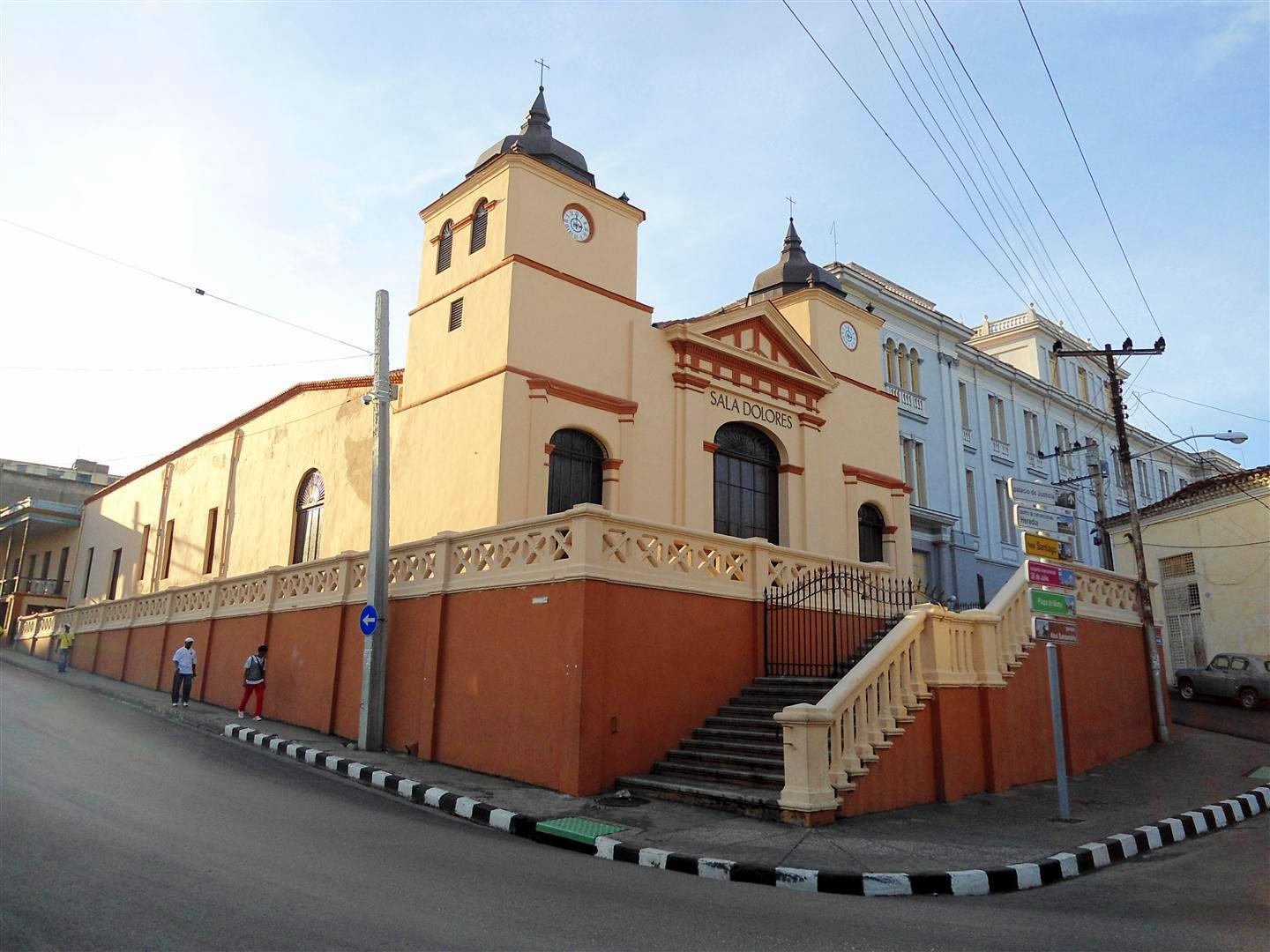
“Just suddenly there was just no light, but nobody was annoyed or impatient – it was just the way it was. You just waited. It made a big impression on me. And then relatively shortly after, my plane lands in Nuuk. And here is the habit, that if the roads have ice, you stop what’s going on, and you’re doing something else – for example like sitting down and waiting. Only Danes move outside in bad weather, Greenlanders do not.
In fact, there is a lot going on below the surface, which I do not fully understand, because I can’t read their entire culture code. I just see them sit down. There is something enormously exciting in the context of attitudes to time in those 2 continents. The manana culture, which is both found in Cuba and in Greenland, it connects in total.”
- Have you been in Cuba more times?
“I’ve been there 3 times. My first visit to Cuba was very exciting. I was supposed to play brand new compositional music. There was not a single salsa or rumba or anything from my repertoire. It was a festival for new compositional music. I was supposed to play both in Havana and in Santiago, and then I had to go to Guantanamo.”
- To the prison?
“No, the Guantanamo base is located right by the water. The city of Guantanamo, which I should visit, is located in the country. A very beautiful and lovely town. You do not connect the two things at all – one is the beauty and the other is the beast, by God!
Cuba is very complex, and it is not a very happy project. Certainly not now when people actually die of cholera and are very ill, especially in the eastern part of Cuba. Drinking water is infected because their sanitation is miserable. It’s an information that does not really get out. And worst of all is to be hospitalized – the doctors have gone to Venezuela. So it’s quite dangerous to get to the hospital nowadays because the country is starving economically.”
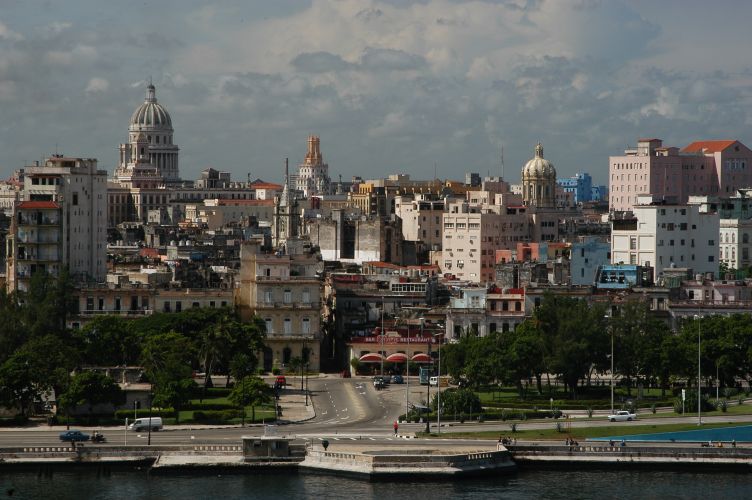
“Having been there several times, I think I have now got so close to the people’s character that I have also met quiet Cuba. That’s where it gets inverted. You are otherwise so keen to smile, that’s simply the way you make contact. It is so borne by an extrovert side – and humans do not always work like that. It is a type of attitude. The other side, as the Cuban does not show, is where it gets quiet. At some point, the light goes out.”
- Does it mean that their human nature is in fact more discreet?
“It’s more complex, it’s not just outgoing and salsa. In Havana, in particular, one is mostly confronted with that tourist Cuba. People behave quite often, as they expect, you want to see them. But that’s not the side of Cuba that interests me at all – that postcard-Cuba. Now I actually speak a lot Spanish so I can talk to the taxi driver. I can understand what he expresses. And it is clear that the population has had more courage to talk about this whole regime, known as communism, but basically a fascist dictatorship.
- It may also be because, probably like in former Eastern Europe, there has been a lot of reporting each other if people were too open about their political positions?
“Yes, and there still is. You still hear about people who are being tortured – writers and artists who “disappear” for a while if they hit the censur. You are being told the good story, and people here in Denmark may also like that story, but the moment you are too critical in your attitude towards the regime, Castro, the history and the communist idea, unexpected things can happen.”
Listen to Mikkel playing a piece from his new CD:
Leo Brouwer “Drume negrita – canción de cuna”
- You have traveled a lot and you have played concerts in many places – are there more interesting places you want to highlight?
“It has been a great experience and wonderful for me to follow developments in the Baltics from the early years immediately after the detachment. I started to go there in the beginning of 2000. And what the people would like at the time, it was: O, just we could get a flat screen! Now they’ve got flat screens enough – now they’ve seen the back side of western life, and frustration begins to unfold in some right-winged trends – so it’s coming there too. But the development of human life in this former Soviet republic, these peripheral states, has been incredibly wonderful to follow.”

- Have they always been afraid that the great Russia could go and push them in a situation?
“They have been caught in the same emotional dilemma that the Greenlanders also have. And that also means that you have made some rules about hiding the Russian away. There are places today where you speak Russian only, and that is because you have some absurd parallel communities – some enclaves where some of the inhabitants do not speak either Latvian or Lithuanian, only Russian. Latvia is complicated, even in relation to the Jewish question. Sometimes I sense some fluctuations about anti-Semitism and nationalism, some issues pointing back to Hitler’s persecution of both Jews and Latvians during the war years, I think, and relations with Russia too. But most often the two peoples live fine with each other, is my impression.”
- On the reviews of your CD-books, I can see that you have an education from the conservatory in Denmark – but also that you have a major education from London?
“It is true. I was a young man and very sensitive so it was like entering an energetic tsunami, that big, noisy and dusty city, and I came from a tiny conservatory in Aalborg. In London it’s a huge conservatory and I was at the upper secondary education. I was not allowed to build up myself at first, there was full spot on from the beginning. It was a wake-up call that everyone in the small classes sat and played the Aranjuez concert – and with a flying speed – while I came with my limited skills at that time. I was welcomed, but to listen to pianists at that level … and violinists, whom I used to hear playing in front of the Aalborg Symphony Orchestra, I suddenly sat down drinking coffee with them. They exist, and in flesh and blood, and they are many! That was how the level was.”

“Of course, this was a big challenge. But what I could take with me was a knowledge of how big and how rich the world is. It was in London I smelled it for the first time: Here you will find a diversity of people and art forms – and everything is to be found in that melting pot! I can not claim I have been in England, but at least I’ve been to London. I know London like my own pants pocket.
- The world is bigger than just the conservatory in Aalborg or Copenhagen?
“Yes exactly! It was a very big and important experience – and this was the international community. That’s why it’s so terrible what has happened now. Brexit is absolutely desperate!”
- Many threads will be cut on that occasion.
“Yes, it’s so unreal. It’s puffed up in the head, instead of looking at the reality we are in. In a sense England jumps off that responsibility. A funny thing about it is that when I was there, I could feel that the ones I actually related best to were the Welsh, the Scots and the Irish. It was not so much the ethnic English people. It was all those who were part of something else or something bigger, and it’s also those I have contact with today.”
Listen to Mikkel playing a piece from his new CD:
Heitor Villa-Lobos “Scottisch-Choro”
“Nevertheless, among the ethnic English, there is also a cultural elite, which is incredibly conservative and, in fact, is incredibly internationally oriented too. It’s also the challenge for London, for honestly, it’s not a place where you get overwhelmingly invited. They actually have what they need. I’ll go over there and play 3-4 concerts in the fall in London and surrounds, and you have to talk a bit loud to be heard at all. But I’m just reminded of that, because I also had to do that before.”
- The empire, it’s gone and if you look geographically on England and then Scotland, Northern Ireland and Wales, there’s not much left. So, England is a relatively small country in Europe, right?
“Well, they are getting smaller and smaller. One can say that the scots are very calmly resting in their own identity, I think. Well, yes, there are groups in Scotland who want to be independent like all other places, but there’s a major part, who think it makes sense to have United Kingdom as a unifying structure. And then they really also think that whatever the EU is, it works very well. Being in some contexts… It may end up in a new type of construction at all.”
- The difference between the folk character in different places – does it also show in the case of music?
“We all have our different expressions, depending on where we belong. And that makes sense – when you think about how music in Cuba sounds, how music in Greenland sounds, how the folk music in Latvia sounds. It makes sense that there is so much difference – and yet there is not, for basically, we reach the core of what it means to be human. That’s where I end up every time I face a new culture.”

“What is wonderful about travelling is to discover that all things exist. But when we try to get things into boxes, we are trying to make an intellectualization of something. And at the moment we do, we exclude ourselves from a kind of reality.”
- The basic idea in humans is the same, it’s just the way?
“Yes, the Greenlanders, for example – apart from their polkas, which by God are played very fast – but when, for example going to church … It’s amazing that people can sing that slowly! I do not know if you have followed the Christmas greetings to Greenland, but there they sing “Guterpuut” while they are standing, and they are all crying. It’s a very beautiful Christmas psalm, but I simply can not understand the phrases, because they are so very slow.”
- I have also tried to attend a Greenlandic worship service and saw in a Greenlandic hymn book that the words could be so long that they filled one and a half line on the page.
“That’s exactly the case, and that’s another side of the Greenlandic language. It is so wonderful and poetic, so there is so much information in every word. I played at a school in Sisimiut, and the Greenlandic name of it was, translated to Danish, “The school at the lake where it is believed that there is a water calf” …. Eh, what ??”
- You also have time to teach in Denmark. Is it you who hold the Copenhagen Guitar School?
“Yes, that’s my store. It is also called “Casa de la Guitarra” – it required this attention and this space because I think that what is happening here, is more substantial and similar to what is happening in many of the music schools I have had knowledge of, and in society in general. I try to make a counterweight and think about a pedagogy and a form of intercourse based on my own ideas about what I think is quality. When I started to see this, my way of being a teacher and my way of being a musician were melted together. Then it was no longer about going to teach and then having to turn the other side off – no, now I could sit with my full integrity and intensity in relation to the students while taking professional professionalism into teaching.”
- It became an apotheosis of all the elements?
“Yes, I will say that. To many musicians, it has been a huge problem to have to teach to make the economy run around. But it is for sure that if I did not like to teach, I would not do it because that’s not the way I am. I think, on the contrary, it has been a gift to find out that sitting and teaching – when we have to sit and look at those kids – we see a part of ourselves. We can mirror a process in ourselves as well. It was exciting when I discovered this – watching a 9-year-old boy come in through the door with his guitar became just like seeing myself coming in with that guitar. The psychological processes are that I can actually deal with it with this child or with this adult, even, and make a difference.
Also in connection with the MGK (Conservatory preparatory course) students I’ve had – I’ve also been able to make a difference in understanding what processes we really are going through. One thing is the musically technical and professional aspects, but there is a lot of things happening inside us too. So in order to calm down, you have to create a foundation that can enter into a conservatory existence on a self-esteem and self-confidence level. It is not enough to be good and being able to play quickly if the rest is not connected. The conservatory existence is extremely hard, and if you are not ready for it, you stumble into it. And then it’s incredibly hard to get up and be strong and get into a proces.”

“Just exercising 8 hours a day – how can you use an investment in a precious youth to understand that it’s actually something that raises you? I think that is exciting. And besides that, it’s also very basic to sharpen the intensity of the young guitarists and their sensuality in relation to music. They obviously turns on the radio in another way when they have been to music education than if they have not been there. Otherwise, they accept the whole thing, but if you start training about the intensity and sensibility of aesthetics, art or what do we have – In fact, we get some citizens of the community who not only swallow raw what they are served but think: Could it be done differently? I think that’s fantastic, but it’s probably not the easiest to get hold of.”
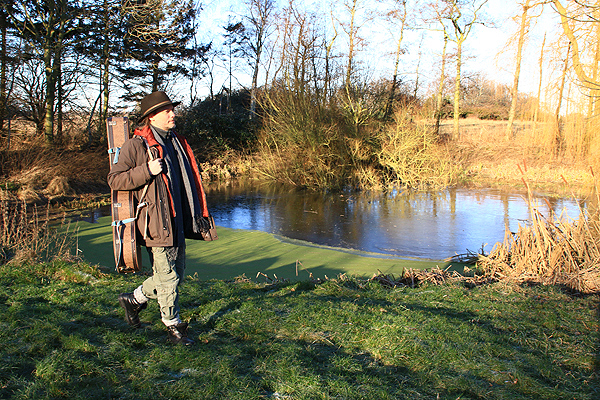
“I think my very great strength in this context is that I see man as a whole. That is, the students come not only as guitarists. If I have to develop their talent, it is the whole palette. And then it takes time. It is certain that the initial pedagogy is simply so significant. We also spend 45 minutes for each lesson in the music school / guitar school, and in addition they play together. So combining the individual with the togetherness and letting the two things meet in a kind of symbiosis, I think is incredibly important.”
- I remember when I was teaching piano, I had 2 students within 22½ minutes. And then leaders found out that if they were there at the same time throughout the lesson they could listen to each other. It was believed that it gave a different dialogue and 2 approaches to what should be discussed.
“It is a model that has typically been used in music schools, and it is because of a financial constraint. One might be so flippant to say that those who have been the biggest players to develop Danish music education, it is in fact the economists. They have simply created a restriction in the music schools. They have been very sharp in the framework and thus cut off opportunities.
My guitar school is the integration of the artistic, the human and the educational. I have learned to recognize this in the guitar school, and it has helped me to take that aspect into my artistic business. And it has been a gift. That means that I can move. I do not have to wear different caps in my life. I can only preserve my human autonomy wherever I am.”
- Are you a good music teacher?
“Yes I am. Because I am very present. And I’m also a good guitarist, so I face my students in my professional skills, which I can completely stand up for. In addition, I am also a person who feels what life otherwise offers of one kind or another. That is, I feel that I stand as a whole in my teaching and in my concert practice.”
- Is the classic guitar’s repertoire limited? Or are new music regularly being written?
“There is certainly enough repertoire to not get cold – we do not run out of the repertoire equipment. But it is clear that if music has to exist as an art form, we will have to be able to lead it into a contemporary context. Even though I play music by composers, who all with a few exceptions have died, it’s also because I’m going to say, in some way: What’s interesting about being human? What is it that speaks to our contemporary – in relation to the life we live? And then there’s nothing strange to play Bach – there’s Bach on all 3 CDs.”
Listen to Mikkel playing Bach in a piece from his new CD:
Joh. Seb. Bach “Fuga” BWV 1000
- Is it the timeless you’re thinking about?
“Yes, there is a timelessness in it and there is something that talks to the basics of being human. There is some folklore, which is what the guitar in my opinion is suitable for. When we talk about this, I can bring it into a contemporary context. And I also think that it is important for me to have the second track called: Well, let’s develop this repertoire. Let’s get some composers to relate to a contemporary context for the instrument and to get some music written. That’s what I’ve spent a lot of time on, and I’ll probably spend time again. I think it’s the headline of the music. I’m not interested in making a musical open-air museum where I’m just sitting and making the one guitar anthology after the other.”

- Is your instrument a dear friend you have had for many years?
“On various detours, I came into contact with this guitar in 2001 – it’s from 2000. I still think it’s my new guitar, but I’ve discovered that I’ve had it for 16-17 years. When I got it, I was the first to play on it. It is built in spruce, and it is not always that such a spruce guitar does whatever it says it should do. And then you have to play it as it wants. It actually wants to have moisture and heat. This means that there is always a communication, even in relation to the weather. Right now, in February, it’s not the optimal season for such a guitar. The small cracks in it are getting bigger in the winter – and the sound is beautiful, but a bit paler than when we are in August – or when I’m in Cuba. Then the sound is completely wonderful. The instrument is a living piece.”
- You have more than one guitar, right?
“Yes, but I’m not a collector.”
- I think if the worst would happen, could you use a reserve?
“Yes, I will be able to. And when I’m out playing modern music concerts, it’s also necessary for me to have more guitars. Because – if I’m going to play with a bow or I’ll make all sorts of kicks…. I have a work from a Canadian-Cuban composer who wants me to play a bow while I’m singing.”
- It sounds somewhat advanced ….
Mikkel smiles: “That’s the contrast to what I love playing on the guitar: to sit down with my guitar and just play. Chair, guitar – and then nothing else.”

- Do you get nervous about the actual kickoff time?
“No, not really! I would like to say that we all have these patterns of reaction. To face 80 people who are looking directly at you – it’s quite extreme. It would be strange if you did not have any kind of reaction to it. Then we can call it nervousness or maybe rather to be up to the task. It is an energetic thing that you can turn into a concentration or inspiration.
If it is pure nervousness then you will be rinsed over. But if you think, “Damn, no, now we go to it!”, then it’s something else. Nervousness looks at the mistake, on the small black holes, so the joy of the music is allowed to disappear. Inspiration can also give you physical reactions, but you don’t care.”
- Do you feel that the interest for the guitar is vibrant and good and growing compared to when you started studying as a young man?
“If we look at the elite in that, I can see that there are some incredibly skilled guitarists on their way up, they win competitions and have some prerequisites – one can find that guitar education has worked, simply.”
- Are there not very few female guitarists?
“Not worldwide, and there are also some in Denmark. But it is the case that as soon as we are elite at any level, the women are dropping off. And they do so for different reasons – there is some upbringing, and suddenly there is a family who is calling. Sorry to say – but we really have a task to solve. Because I just promise you that there are skilled female guitarists! And it’s just a gift for a subject if you could have a high level balance, high profiled, so it’s not just a narrow picture that playing guitar is a masculine matter. Because guitar is a very beautiful and feminine instrument too.”
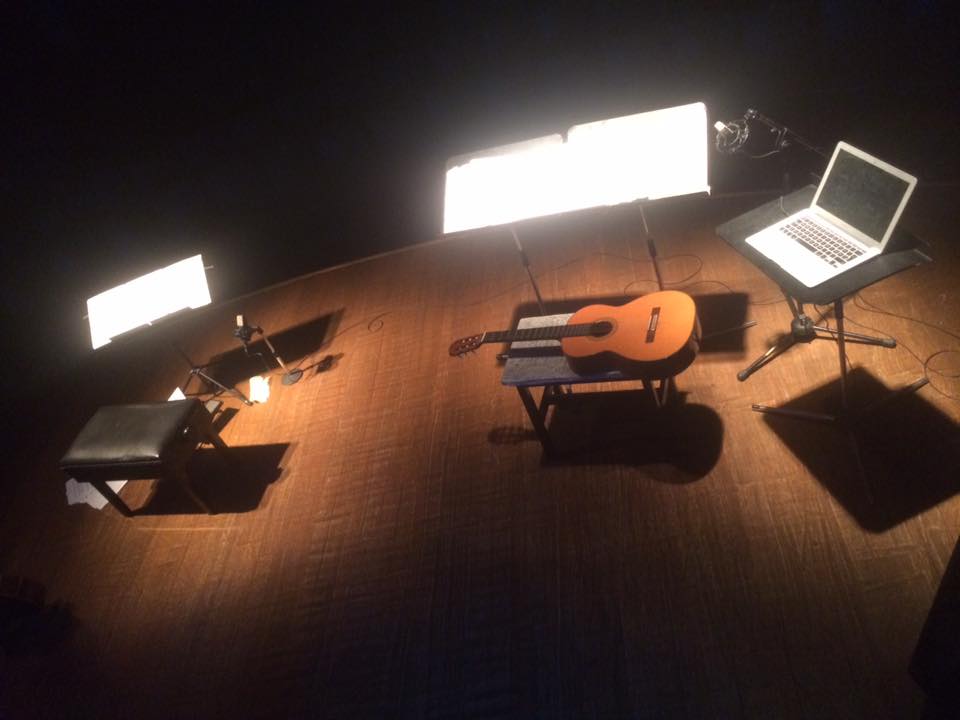
“I think there are parts of the guitar that are more exciting than others. I think there is a depth in the guitar and in communicating the guitar music that has a mission, something we need. You can probably find the same depth in the organ, in the violin – but my love for the guitar makes me not want to change. I think cello is wonderful, but it must be next time. This time, the guitar is definitely wonderful for me to immerse myself in.”
- You mean in your next life, is it becoming a cello?
“In my next life, we just need to figure out how the cello is, because this instrument we can also use. I just want to learn it – then I can return to the guitar afterwards.”
Copyright: Editshop.dk
